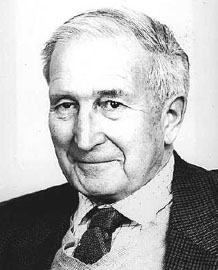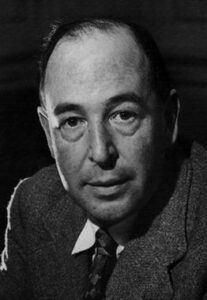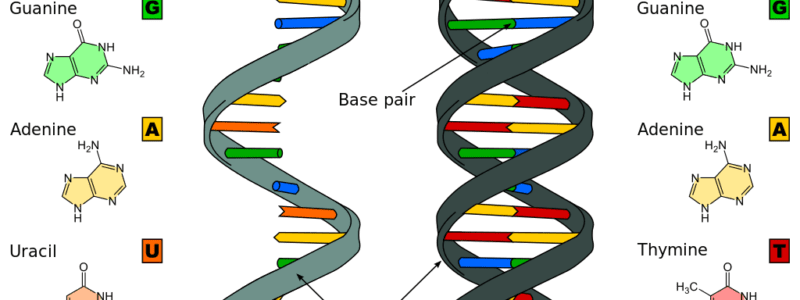Finding the Truth

The Truth
Finding the truth is one of the most important tasks people must perform during their lifetime.
Frequently, this quest is accomplished early in life, with the rest of life-based upon that discovery. These are the fortunate few who have seriously investigated the evidence and arrived at a conclusion upon which they can base their actions.
Finding the truth implies there are falsehoods. Believing in falsehoods will more likely get the believer into trouble than finding the truth. Falsehoods often lead off into tangents, years spent climbing the ladder of success (however it might be defined) only to find at the end of life you were climbing the wrong ladder.
Finding the truth is difficult because falsehoods have always had louder voices. Consider the falsehoods of money, sex, and power; all very powerful yet none leading to true satisfaction and peace.
The philosopher Douglas Groothuis noted,
Truth is a daunting, difficult thing; it is also the greatest thing in the world. Yet we are chronically ambivalent toward it. We seek it … and we fear it. Our better side wants to pursue truth wherever it leads; our darker side balks when the truth begins to led us anywhere we do not want to go.
Finding the truth of any matter demands a lot of effort. We are usually blinded by our prejudices and fail to objectively evaluate the evidence that is contrary to our presuppositions.
Most people are comfortable in their concept of truth without aggressively trying to defend it against contrary evidence and arguments. It is only through debate and argument with those of an opposite opinion that a better understanding of a topic can be established.
Christianity and Finding The Truth
Perhaps the most important task during life is to determine what is the best world view.
Generally, people do not purposefully work to establish their worldview. It is passed to them by their family and friends and often is not critically examined unless a serious problem arises. It may not be until disaster strikes such as the death of a loved one or finding themselves in jail, that many question the lifestyle and worldview they have chosen.
Scientific Evidence

By عبد الله الصيدلي at Arabic Wikipedia – Transferred from ar. Wikipedia to Commons., Public Domain, Link
Anthony Flew was one of the world’s most aggressive atheists who for many decades launched broadsides against religious belief. He was able to leave his mind open for the possibility that he might be wrong and could evaluate alternative evidence presented to him.
He was a philosopher but was also interested in science. He eventually concluded that greater scientific knowledge was revealing the increasing likelihood that there was a God. He noted,
I now believe that the universe was brought into existence by an infinite intelligence. I believe that this universe’s intricate laws manifest what scientists have called the Mind of God. I believe that life and reproduction originate in a divine Source. Why do I believe this given that I expounded and defended atheism for more than half a century? The short answer is this: This is the world picture, as I see it, that has emerged from modern science.
Flew would go on to note,
What I think the DNA material has done is that it has shown, by the almost unbelievable complexity of the arrangements which are needed to produce life, that intelligence must have been involved in getting these extraordinarily diverse elements to work together.” When asked how his atheist friends responded, he said: “I have been denounced by my fellow unbelievers for stupidity, betrayal, senility, and everything you could think of, and none of them have read a word that I have ever written.
Flew came to realize that scientific discovery in cosmology, biology, and the natural sciences show increasing complexity that cannot be explained by chance. Flew reasoned that chance production of even the simplest of life through natural means is simply not supported by science.
Flew recognized how easy it is for preconceived notions and opinions to color what we believe is the truth without being open to the possibility that new information might prove these preconceived notions wrong.
Science for example is always discovering new information which can change what is considered to be the “Truth” about a given topic. While the truth never changes, our perception of what constitutes the “truth” frequently does.
Flew followed the truth evidence even when it contradicted his life’s work and made enemies out of his friends. He had the rare talent of changing his mind about a topic when further information became available to him.
Literary Evidence
CS Lewis usually is recognized as one of the most influential Christian apologists of the twentieth century. His books are still very popular among those trying to understand the basis of Christian understanding.
But Lewis went through a long period of atheism when he believed Christianity based its belief system on ancient myths and tales similar to ancient Greek popular myths. He came to this conclusion while a teenager while attending public school at the prestigious Malvern College in England. He went on to become a professor at Oxford University where he gradually changed his opinion.
He read G.K. Chesterton’s book The Everlasting Man, now recognized as one of the best Christian books of the last century. In this book, Chesterton disputed H.G. Wells’ outline of human history. In this outline, Wells portrays human life and civilization as a development from animal life (man being just an intelligent animal), and Christ as merely another charismatic figure in a long series of charismatic people. Chesterton tries to counter Wells’ argument by illustrating the course of human history as pointing to Christ.
Christ is the central element and most important event of all mankind’s history.
Lewis then learned of the conversion of one of the more militant atheists on the Oxford faculty, T.D. Weldon. Weldon set out to disprove the Gospels but found them to be historically accurate. This confession proved troubling for Lewis. Lewis had believed the New Testament to be little more than myths without any practical value or historicity. Lewis came to believe his life might be headed in the wrong direction and that Christianity might, in fact, represent the truth. Lewis reconsidered his earlier beliefs and set out on an adventure of truth-finding.
Lewis was a professor of English at Oxford and had spent his professional life studying ancient manuscripts. He noted the New Testament did not contain the carefully stylized qualities of a myth-making culture. He noted,
[The Gospels] appeared to be simple, eye-witness accounts of historical events primarily by Jews who were clearly unfamiliar with the great myths of the pagan world around them … I was by now too experienced in literary criticism to regard the Gospels as muth. They had not the mythological taste.
Lewis recognized the Gospels as different from other ancient literature.
Now, as a literary historian, I am perfectly convinced that whatever else the Gospels are, they are not legends. I have read a great deal of legends and am quite clear that they are not the same sort of thing. They are not artistic enough to be legends. From an imaginative point of view, they are clumsy; they don’t work. Most of the life of Jesus is totally unknown to us and no people building up a legend would allow that to be so.
Lewis followed the trail wherever it might lead. He had dismissed the Gospels as a youth because they had sounded so unconvincing and without merit from a cursory reading. He determined that with expert literary evaluation they had the “ring of truth” about them. They were very different from the mythology literature of the Greco-Roman world as they had a background of actual historical events. The Roman rulers were actual historical people and the is a large amount of confirmatory evidence to corroborate much of the historicity of the accounts.
Summary for Finding the Truth
Most people have never read the Bible, and yet most people have an opinion about it. The Bible is the best-selling book of all times throughout the world, and it is difficult to print enough Bibles to fulfill the demand, especially in third world countries. And yet, most Americans who have a Bible use it more for decoration or to occupy a place on their bookshelves.
This would seem to equate with prejudice. While it may equate as a source of wisdom for many Americans, most do not read it for themselves and would be ignorant of its contents.
Reasons for not reading the Bible are listed below,
- Don’t prioritize it (27 percent)
- Don’t have time (15 percent)
- Have read it enough (13 percent)
- Disagree with what it says (10 percent)
- Don’t read books (9 percent)
- Don’t see how it relates to them (9 percent)
- Don’t have one (6 percent)
Lewis had not ever read the Scriptures seriously even though he had decided it was all just a myth. After seriously reading the Gospels, he had the courage to follow the evidence where it led.
Anthony Flew was a life-long atheist who famously assumed the atheist position while debating Christians at formal events. He too changed his mind when he made a serious evaluation of the evidence toward the end of his life. For his conversion to theism, Flew was berated as being everything from deluded to having developed advanced dementia.
The evidence for Christianity holds up very well to close examination – it is the most important work that a person can ever do in their life to critically and seriously evaluate the evidence with the understanding they will follow where the evidence leads.





